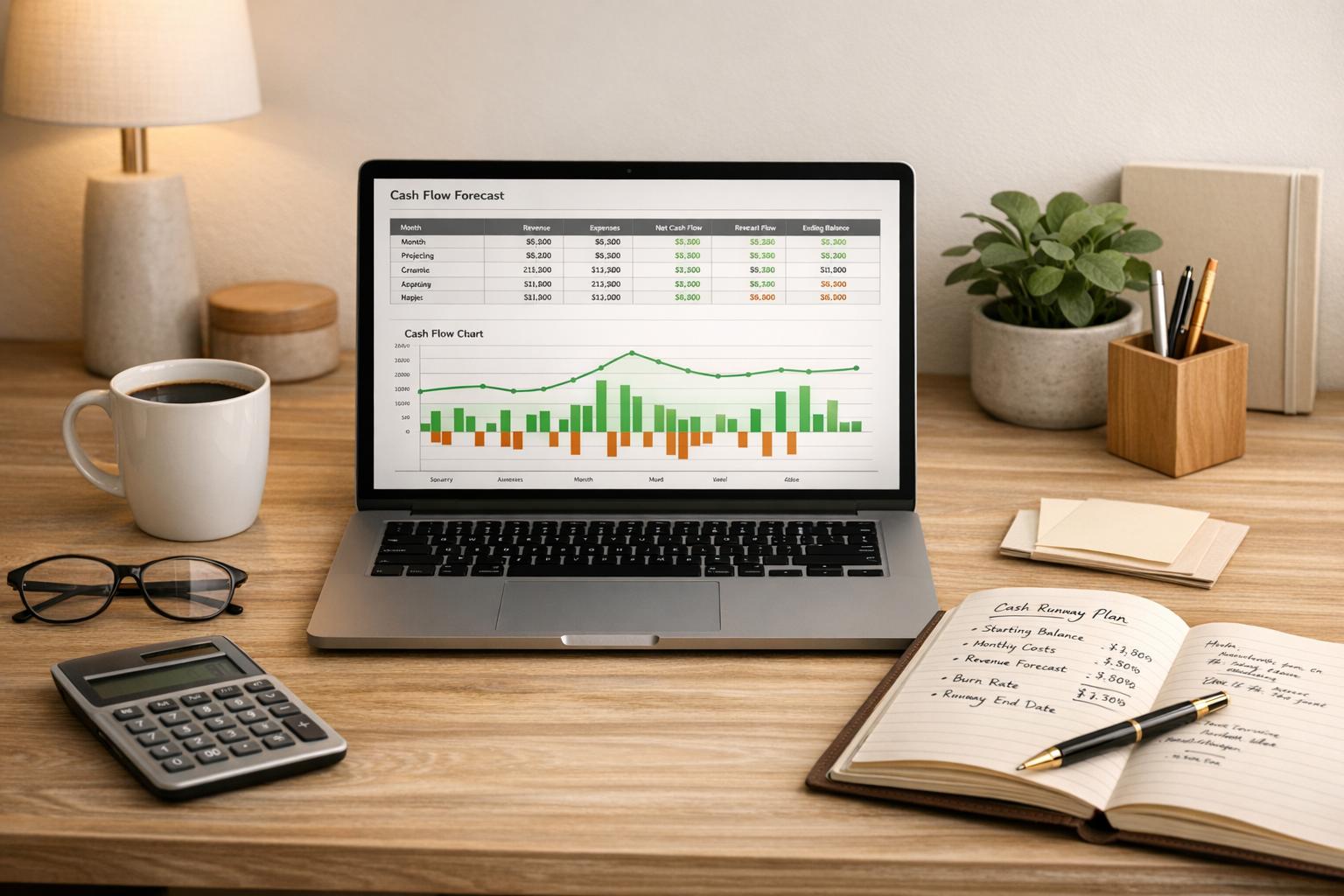The Ultimate Guide to Buying FedEx Routes: Valuation, Process, and Profitability

FedEx, short for Federal Express, FedEx Ground enters into agreements to charge them. FedEx Ground is a globally recognized courier delivery service specializing in small package information, transportation, pickup, and delivery services both domestically and internationally. Did you know that you can buy a FedEx route and benefit from each delivery made in your assigned territory?
This comprehensive guide will take you through the step-by-step process of buying a FedEx Ground route, covering everything from understanding different route options to navigating legal aspects and evaluating profitability.
Further Reading: Many owners assume profitability alone drives valuation. This article explains why exit readiness — financial clarity, scalability, and risk reduction — is what ultimately protects and grows value.
Understanding FedEx Route Businesses
How FedEx Route Businesses Work
Instead of owning trucks and employing drivers directly, FedEx Ground contracts with independent service providers who hire their own employees to provide delivery or transportation services within an agreed-upon service area. When you buy a FedEx route, you're essentially paying for the trucks and entering an agreement that allows you to operate in a legally protected territory under the FedEx brand.
Unlike franchises requiring territory rights fees. Service providers operate with their own employees and receive payments from FedEx Ground. There's no initial fee to become an eligible business, as FedEx is not selling a business opportunity. Service providers can run their businesses with minimal interference from FedEx Ground.
Types of FedEx Routes
There are two main types of FedEx Ground routes:
- Pickup and Delivery (P&D) Routes: These involve daily pickup and delivery of packages to businesses and homes within a specific territory. P&D routes typically operate during the day and are an excellent option for those just starting out.
- Linehaul Routes: These routes involve interstate transportation to deliver packages between different FedEx facilities. Linehaul routes typically utilize trailers and require drivers to hold valid Commercial Driver's Licenses (CDLs) and meet specific driving experience demands. They often operate at night or during lower traffic times and are generally more lucrative but also entail more risks and regulations.
The Process of Buying a FedEx Route
1. Searching for FedEx Routes for Sale
To begin your journey in owning a FedEx route, you'll need to search for available routes. Here are several ways to research:
- Networking: Attend industry events, join forums or social media groups related to FedEx contractors. Engaging with other contractors can provide valuable insights and potential leads on routes for sale.
- Brokers: Contact business brokers who specialize in buying and selling routes. They may have listings for FedEx routes or can assist you in finding available opportunities.
- Online Resources: Utilize websites that list FedEx routes for sale:
- Build A Ground Biz: FedEx's official site for business opportunites.
- Routes to Success: A site exclusively built to promote route listing
2. Checking Your Eligibility
Before diving deeper into route options, ensure you're eligible to obtain a contractor agreement with FedEx. To own a FedEx route business, you'll need to sign a FedEx Independent Service Provider (ISP) agreement. Key requirements include:
- Your business must be structured as a corporation
- Ability to handle employee-related responsibilities
- Commitment to maintaining safety and compliance programs
- Meeting route requirements (minimum of 5 routes or 500 stops per day)
- Compliance with owner-operator requirements if you plan to drive
3. Conducting Due Diligence
Once you've found an ideal FedEx route and confirmed your eligibility, it's crucial to evaluate its potential profitability and underlying risks. This due diligence process involves analyzing the business's financials and the condition of the equipment. Consider seeking professional assistance from acquisition attorneys and accountants during this stage.
Key areas to examine include:
- Costs and profit margins
- Financial statements (profit and loss, balance sheets, income statements, tax returns)
- Employee information and retention rates
- Vehicle and equipment condition
- Contracts and corporate documents
Don't hesitate to ask the seller important questions about their reasons for selling, current operations, and financial expectations.
4. Financing the Purchase
After thorough analysis, explore financing options for your acquisition. Your creditworthiness, business plan, and industry experience will play crucial roles in securing funding. Consider these options:
- Seller Financing: Ask if the seller offers financing, allowing you to make a down payment and pay the remainder in monthly installments with interest.
- Term Loans: Seek loans from financial institutions. Be prepared for scrutiny, as banks typically require a high credit score, collateral, and substantial down payments.
- SBA Loans: These government-endorsed loans can be used for working capital or equipment purchases. They often offer longer terms with lower down payments but may have a lengthy application process.
Financing decisions made today don’t just impact cash flow — they shape how clearly a future buyer can assess risk, durability, and overall exit readiness. which can be provided by our fractional CFO services.
5. Signing the Purchase Agreement
Once due diligence is complete and you've secured financing, it's time to draft and sign a purchase agreement. This document, prepared by your business attorney, should address all liabilities identified during the examination process. It will define an adequate purchase price based on the business valuation and include clauses to mitigate transaction risks.
6. Obtaining FedEx Approval
After signing the purchase agreement, you'll need to create and submit a Request for Information (RFI) to FedEx to begin the approval process. The RFI should contain your business plan, goals, marketing strategies, and financial objectives. Key elements to demonstrate include:
- Financial viability
- Management and operational capabilities
- Available resources and expansion plans
- Customer service approach
- Commitment to safety
- Legal compliance
FedEx Route Valuation
Understanding the valuation of a FedEx route is vital for operators seeking to carve out a successful route, especially if you're considering buying or selling. Familiarity with FedEx route valuation multiples can be incredibly beneficial in these scenarios.
The Appraisal Process
The valuation of a FedEx route involves examining various factors. A business appraiser will scrutinize key value determinants specific to a FedEx route and the associated financial statements. This process includes comparing your FedEx route with other recently sold, comparable FedEx routes to deduce a fair market value for your business.
FedEx Route Valuation Multiples
Valuation multiples are frequently used by experts to ascertain the value of a FedEx route. These ratios allow for comparison with similar recently sold FedEx routes, enabling the valuation expert to establish an appropriate valuation multiple for your business. Common multiples include:
- Seller's Discretionary Earnings (SDE) Multiple: On average, FedEx routes have an SDE multiple range of 2.93x – 3.43x. The value of a FedEx route can be calculated as: Seller's Discretionary Earnings X Multiple = Business Value
- EBITDA Multiple: The average EBITDA multiples range between 3.60x – 4.06x. This multiple is favored as it offers normalized ratios, enabling accurate comparison of similar FedEx routes.
- Revenue (REV) Multiple: FedEx routes typically sell at an average REV multiple between 0.64x – 0.81x. This multiple represents the total revenue generated by a FedEx route and can help estimate the business's value.
It's important to note that these multiples serve educational purposes only and do not constitute valuation advice. A detailed business valuation is.
Understanding valuation is just one part of the picture — positioning your business to be exit-ready can increase buyer interest and value when the time comes to sell.
Pros and Cons of Buying a FedEx Route
Advantages
- Built-in Brand Recognition: Operating under the FedEx brand provides access to a reliable business model with an established recommended formation of your speed customer base and revenue stream.
- Reliable Income: FedEx routes typically offer stable income due to consistent demand, although sales may vary seasonally.
- Quick Payment: Unlike some companies that may wait 30+ days for payment, FedEx pays almost immediately, easing cash flow concerns.
- Ongoing Support: As part of the FedEx network, you'll receive training and access to resources and systems to help navigate the logistics industry efficiently.
- Flexibility: Owning a FedEx route allows you to be your own boss and have control over your schedule.
- Reduced Marketing Expenses: Under this business model, you don't have to spend significant time or money on sales and marketing or customer acquisition.
Disadvantages
- Initial Investment: Acquiring a FedEx route typically requires a significant upfront investment, including the purchase price of the route, vehicles, equipment, and other operational expenses.
- Financing Challenges: Finding funding options for buying a FedEx route can be difficult, as lenders who offer financing for this purpose are scarce.
- Regulatory Compliance: You'll need to ensure you have the required licenses and permits and comply with state and federal trucking laws.
- Operational Challenges: Running a FedEx route involves managing complex logistics, coordinating deliveries, and handling customer service inquiries, requiring effective organization and problem-solving skills.
- Employee Management: As a route owner, you'll need to recruit, train, and manage drivers and other employees, which can be challenging, especially for linehaul routes.
- Holiday Work: Since some holidays coincide with peak delivery seasons, you may need to work during these times.
Expected Costs and Profit
Costs
The initial investment for purchasing a FedEx route can be substantial. Here's a breakdown of typical expenses:
- Route Purchase: Costs vary based on location, number of employees, and other factors. A down payment of 10% to 25% of the total purchase price (approximately $60,000 to $100,000) is usually required.
- Employee Expenses: As a FedEx contractor, you'll likely hire an average of seven employees, covering wages, health insurance, and retirement plans.
- Vehicles and Equipment: While vehicles are typically included in the purchase price, you'll need to budget for uniforms, decals, scanners, software, fuel, and maintenance costs.
Profit
FedEx contractors may be paid in three different ways:
- Annual Fixed Fee: A pre-established flat fee paid each year, contingent on the route's size and location.
- Payment per Service: Typically $1 for each delivery and $2 for pickup.
- Incentives: Additional payments for meting customer service and safety standards.
Profit margins vary depending on the route type, location, number of employees, and demand. On average, a FedEx route business generates about 10%-25% of revenue, translating to an approximate annual profit of $30,000 to $40,000.
Conclusion
Buying a FedEx route can be a lucrative business opportunity for entrepreneurs looking to enter the logistics and delivery industry. With built-in brand recognition, reliable income, and the potential for growth, FedEx routes offer an attractive option for those willing to invest the time, effort, and capital required.
However, it's crucial to approach this opportunity with thorough research, careful planning, and a clear understanding of the responsibilities and challenges involved. By following the steps outlined in this guide – from searching for available routes to conducting due diligence, securing financing, and obtaining FedEx approval – you'll be well-prepared to make an informed decision about purchasing a FedEx route.
Remember that success in this business relies not only on the initial purchase but also on your ability to manage operations efficiently, maintain high service standards, and adapt to the evolving needs of the logistics industry. With dedication and smart management, owning a FedEx route can provide a stable and profitable business venture for years to come.
If you are ready to run your business with clarity and precision, Phoenix Strategy Group can turn messy operations into tight, repeatable processes powered by real-time financial insight. Schedule a Call Today.




